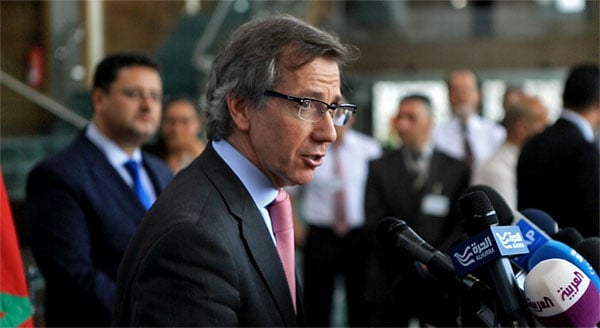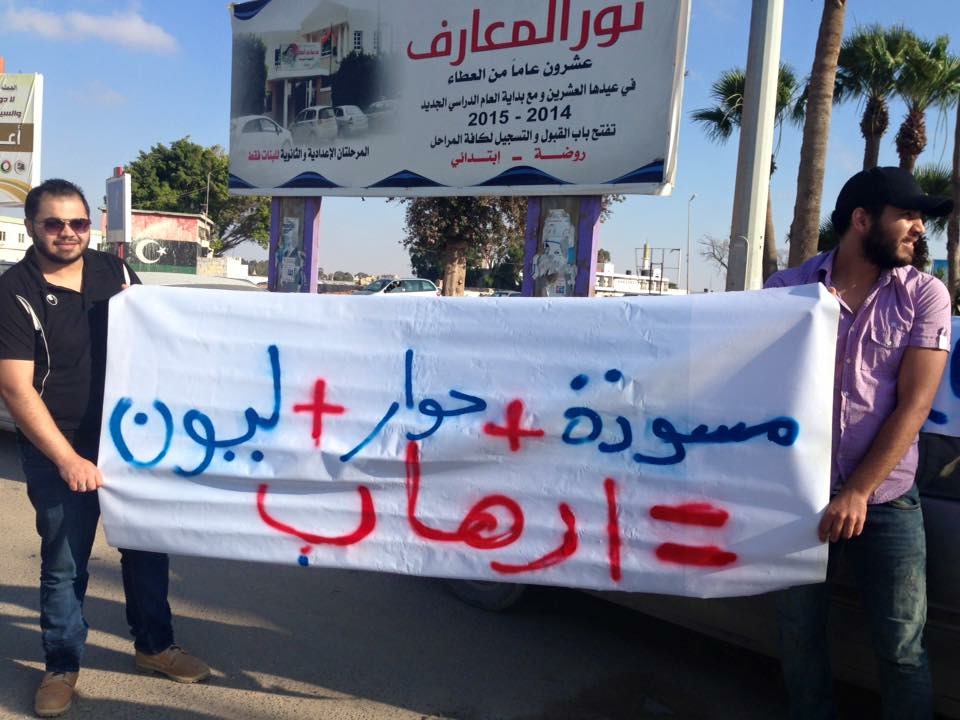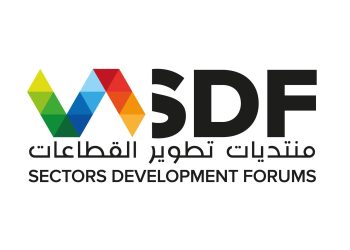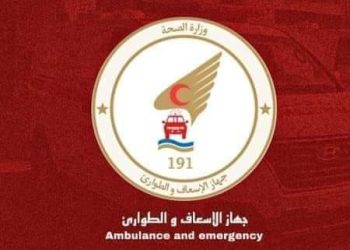By Libya Herald staff.

Benghazi/Berlin, 9 June 2015:
The House of Representatives (HoR) has decisively rejected the latest and supposedly final draft . . .[restrict]from UN for a peace settlement as unacceptable. In Tobruk, 55 members out of 72 attending today’s session are reported to have decided to suspend the HoR’s involvement in the process and to call back their delegates to Torbuk for talks.
Despite the decision, the HoR delegation along with all the others in the main Dialogue process arrived in the German capital this evening to which they had been invited to meet tomorrow with foreign ministers and representatives from the from the five permanent members of the UN Security Council as well as Italy, Spain, Germany and the EU.
Nonetheless, it became apparent late Monday night that the latest proposal from UNSMIL, which reduces the powers of the HoR proposed in Draft No. 3 while 90 members of the rump General National Congress would be made members of significantly empowered State Council, would be rejected.
Abubakr Said, member for Tarhouna predicted last night on social media that it would be vetoed, followed this morning by Benghazi member Tariq Gerushi. Essa Abdalkaoum, the spokesman for the HoR delegation, likewise said that that Leon should be ready to write a fifth draft because the HoR would say no.
According to HoR Shihat member Nasreddin Muftah, one of the reasons for the rejection was the proposal to give political powers to the Dialogue delegates, most importantly the right to propose the prime minister and ministers or, should they cease to hold office, their replacements, rather than the HoR.
However, taking a completely different view, the ambassadors to Libya of the European Union, Germany, Italy, Spain, the United Kingdom, the United States and Russia (participating for the first time in a joint statement) came out resoundingly in support of the latest draft.
“We welcome the presentation of the fourth and final draft of the Libyan Political Agreement by the UNSRSG Bernardino Leon, which represents more than six months of intensive consultations by the UN across Libyan society with the support of the international community”, they declared.
The draft represented a “sincere attempt” to reflect Libyan views, they said. It was a “balanced document which offers the best way forward”. They also claimed that it “addressed the concerns of all parties based on their input”.
The French government added its own further support for the draft calling it a compromise that would enable “the rapid forming of a national unity government to rebuild the Libyan institutions and economy, and combat terrorism and criminal networks”.
Libya, it said, faced “a grave threat to its security, the integrity of its territory, and its sovereignty”. Libyans had to create a united front against terrorism without further delay, it added.
“France urges the Libyan parties to opt for compromise and unity by signing this agreement without delay. It stands by all Libyans who defend the higher interests of their country.”
In Libya, there has been support for the draft, notably from within the General National Congress almost all whose remaining members would be legitimised and empowered as members of the proposed State Council.
For his part, Mohammed Sawan, leader the Justice and Construction Party, who would almost certainly make it into the proposed State Council, welcomed the draft as an improvement on the previous one.
More significantly, the National Commission for Human Rights in Libya, which has been critical of Libya Dawn and the regime in Tripoli, has also welcomed it.
From UNSMIL head Bernardino Leon, there was understandable optimism. “The reaction is positive,” he said today.
However, without HoR support, it is certain to be dead in the water unless, in Berlin tomorrow, UN and European foreign ministers can persuade it to think again.
It is unlikely, however. In a sign of the anger today, in the east in particular, protestors took to the street of Benghazi, Tobruk and other places to demonstrate against the draft, the Dialogue and Leon. They accused him of aiding and abetting the Muslim Brotherhood and terrorists. It was described in Benghazi as a “betrayal of the blood of the martyrs”.










